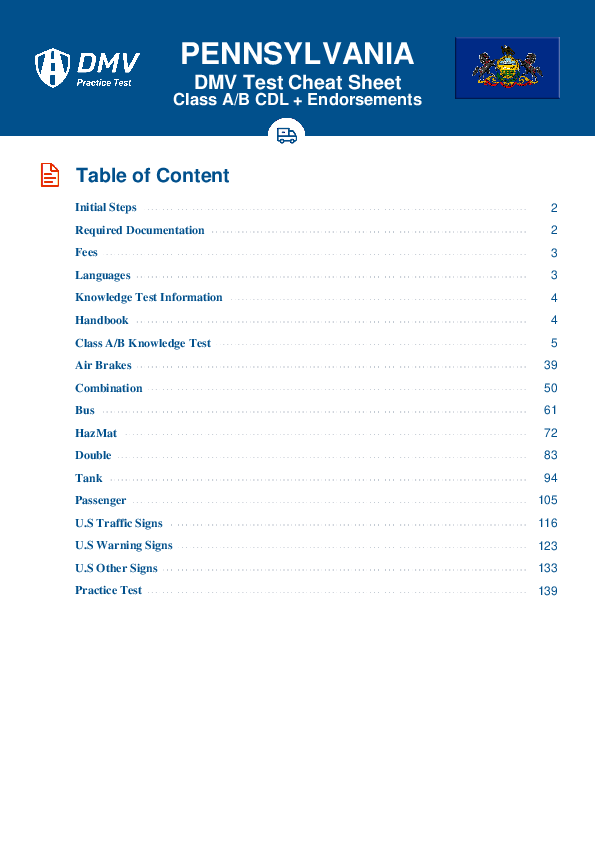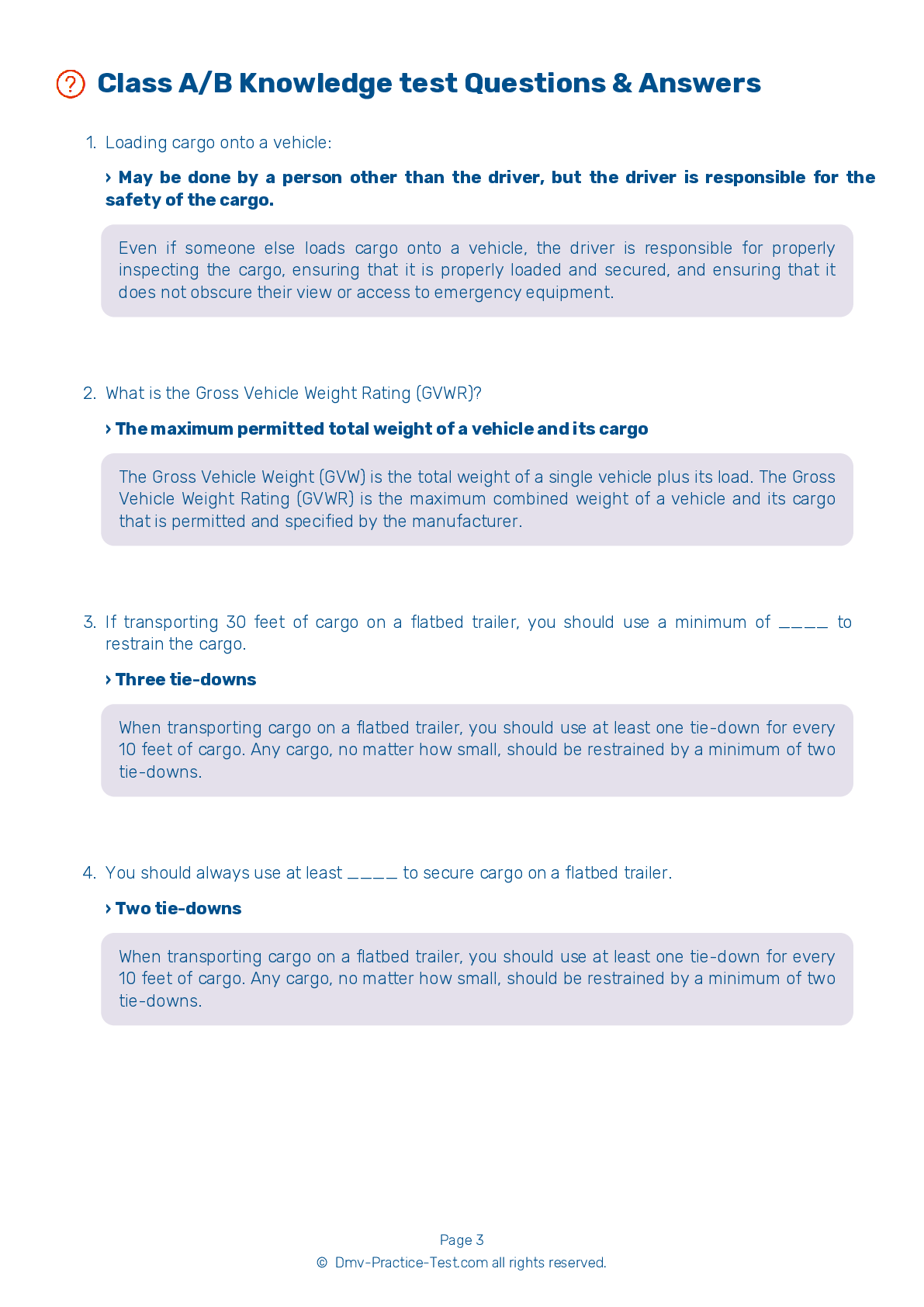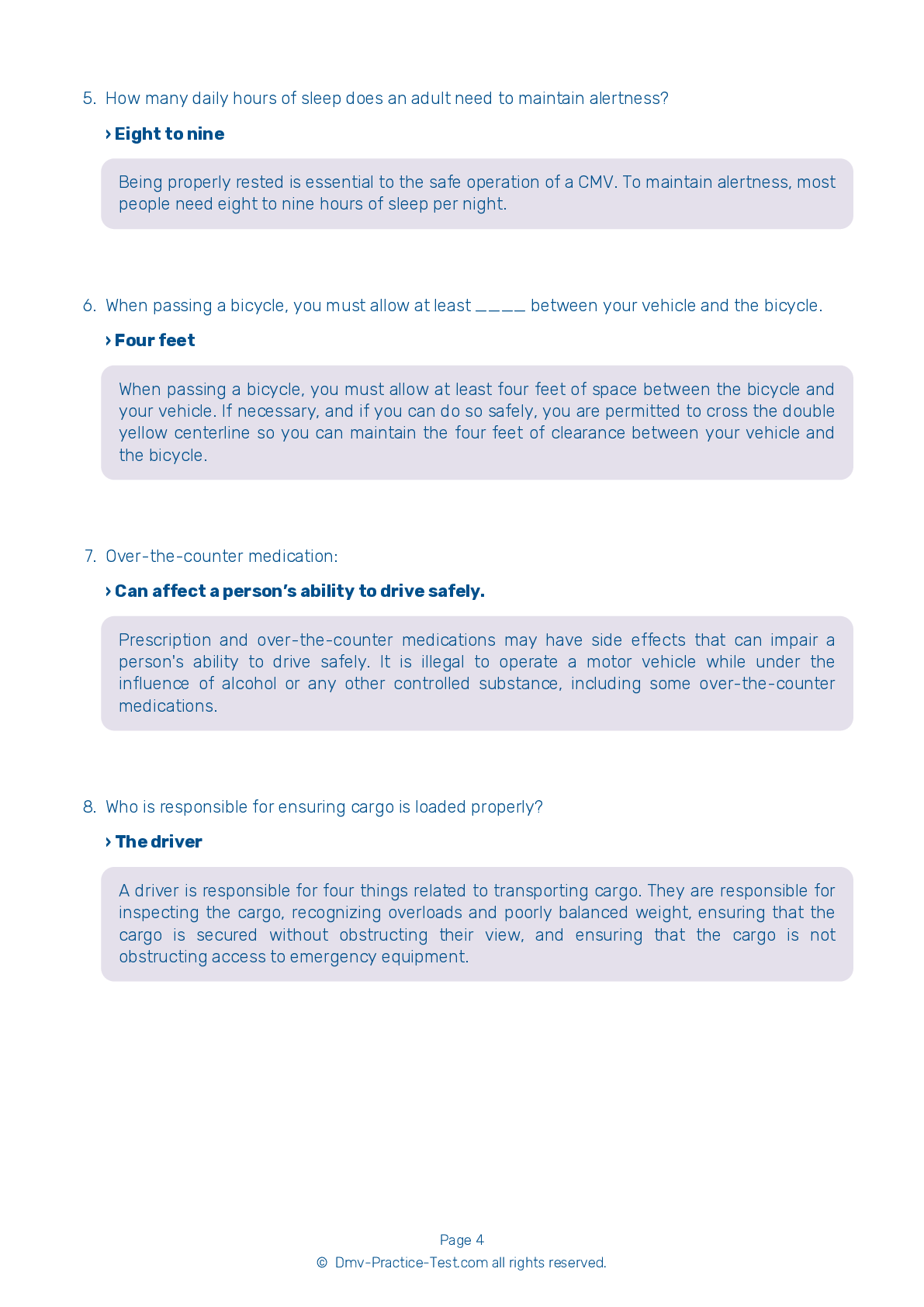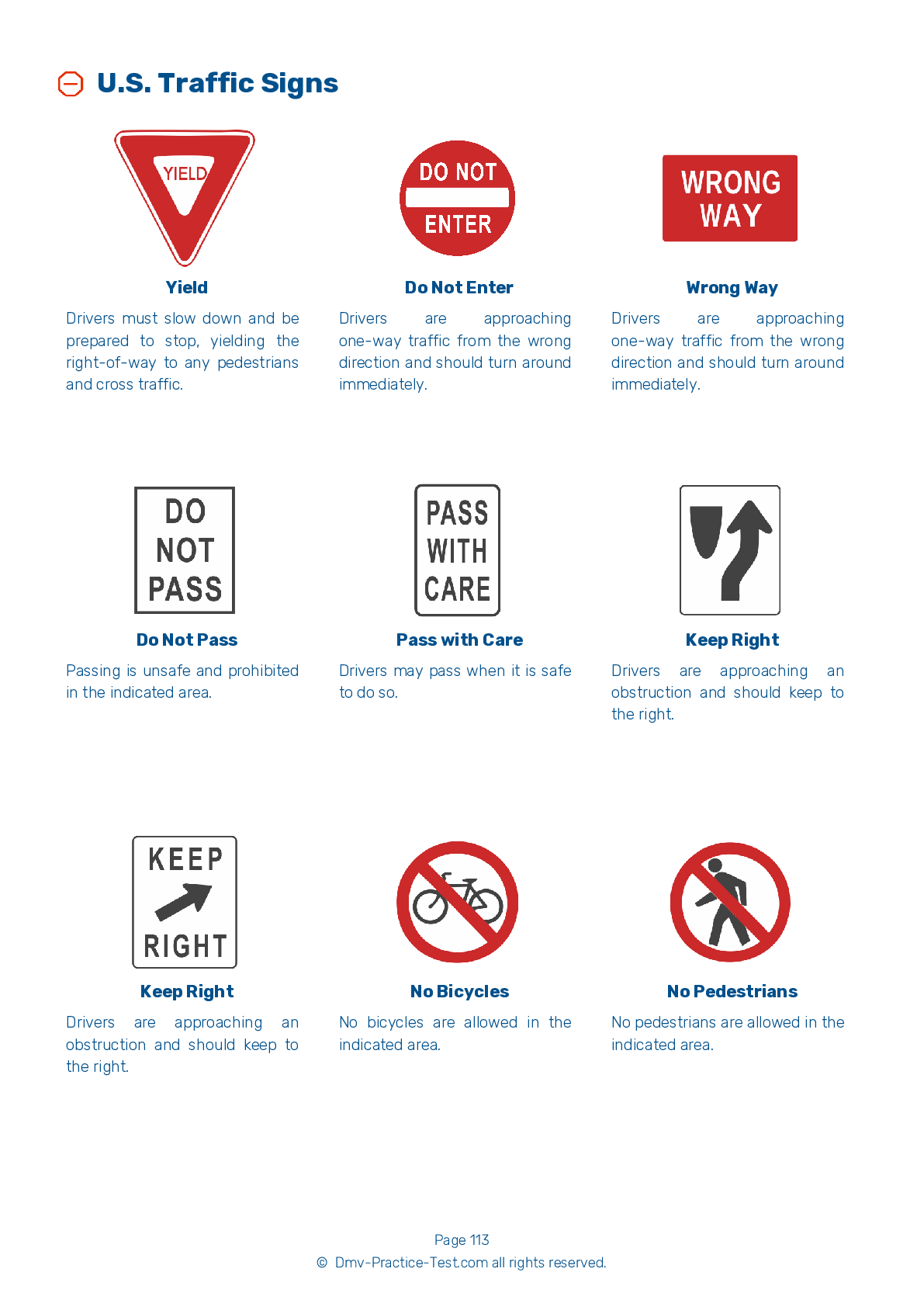Class A Driving Test | Pennsylvania 2026 #2 Page 4 of 7
Train for FREE online with our Pennsylvania class A license test. The official exam test consists of several obligatory parts, with all of them checking your knowledge of different blocks of road rules. If you need to obtain a PA CDL class A permit in 2026, practice as much as possible. Free sample tests published on our website will help you check and improve your knowledge and boost your grades. Please bear in mind that CDL class A requirements may vary from state to state.
22 . When approaching a curve during the on-road driving test, you must do all of the following, except:
When approaching a curve during the on-road driving test, you should thoroughly check traffic in all directions. Before entering the curve, reduce your speed sufficiently so that further braking or shifting is not required. Keep your vehicle in its lane and continue checking traffic in all directions.
23 . A driver should stop after a short distance after changing a tire to:
After a tire has been changed, you should stop after a short distance to re-check the tightness of the wheel nuts.
24 . If a driver holds a CDL and moves to another state:
If you are a new Pennsylvania resident and wish to obtain a CDL, you must surrender your out-of-state license. Pennsylvania law may prohibit issuing licenses to out-of-state addresses. If you surrender an out-of-state CDL, you must undergo a vision screening test. You must undergo additional testing if you want to be licensed to transport hazardous materials or operate a school bus.
25 . During the vehicle inspection portion of the skills test, an applicant will be required to:
During the vehicle inspection skills test, you will need to explain to the examiner what you are inspecting and why.
26 . A stopped bus:
Always drive cautiously around a stopped bus. Passengers may cross in front of or behind it, and the bus may prevent them from seeing your vehicle.
27 . When driving, you may:
While driving a CMV, using a hand-held cell phone to make a call, or pressing more than one button when dialing, is prohibited.
28 . If the brake pads rub against the brake drums and create too much heat:
Brakes heat up with use. If they are overused and become too hot, expansion and chemical changes will make them less effective and eventually cause them to stop working altogether. This is known as "brake fade."
See the exact questions that will be on the 2026 Pennsylvania DMV exam.
99.2% of people who use the cheat sheet pass the FIRST TIME
Lillian MCcranie explains how our CDL study guide was helpful in passing the exam and recommends it to everyone.
Cameron tells us how he purchased the CDL exam, and found it to be a useful tool which helped him pass the exam and find a job.



